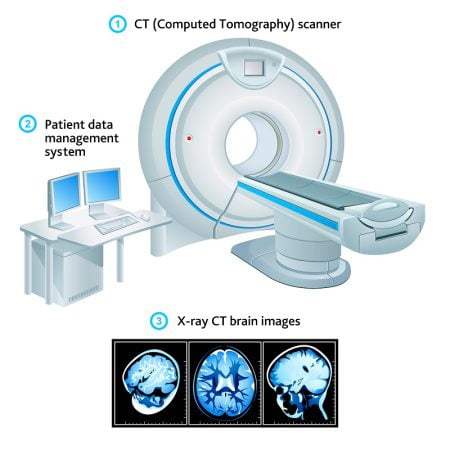PID in Pregnancy
- Updated on: Jul 5, 2024
- 3 min Read
- Published on Nov 23, 2020

Introduction
Pelvic inflammatory disease is a type of infection that affects a woman’s reproductive organs, including the uterus, the ovaries, and the two fallopian tubes that serve as a passage between the ovaries and the uterus (womb). This disease usually occurs when the disease-causing microorganisms in the lower genital tract enter through the cervix (separates the uterus and the vagina).
How PID Affects Pregnancy?
Untreated pelvic inflammatory disease can create a lot of problems for women both during and after pregnancy.
Before Pregnancy
Nearly 100,000 women per year struggle with infertility caused by PID. The infectious microorganisms like Neisseria gonorrhoeae and Chlamydia trachomatis enter the female reproductive tract through the vagina and enter the fallopian tube, causing the infection. In severe cases, the infection within the fallopian tube may lead to scar tissue formation in the female reproductive organs; this is called a tubo-ovarian abscess. These scar tissues within the fallopian tubes may sometimes block them and therefore prevent the entry of sperm. As a result, the sperm cannot meet the egg, which may ultimately lead to infertility in women (a condition in which females cannot conceive).
Read About Infertility and PID
During Pregnancy
Although the pelvic inflammatory disease is not common during pregnancy, it may occur within the first 12 weeks before the mucous plug or scar tissue can be an adequate barrier. The scar tissue in the fallopian tube prevents the fertilized egg from passing through the tube into the uterus (prevents implantation in the uterus). This leads to the implantation of the fertilized egg anywhere except the endometrial lining of the uterus, called an ectopic pregnancy. Ectopic pregnancies can rupture the fallopian tubes resulting in internal bleeding and may even cause death. Scars or abscesses in the fallopian tubes and ovaries may also cause pelvic pain that lasts for months or even years. Pregnant women with a history of PID develop many complications during pregnancy, such as miscarriage, premature birth, stillbirth, etc.
What Are the Risk Factors Associated With PID?
The risk factors associated with the pelvic inflammatory disease are:
- Having multiple which makes the women prone to PID.
- Women who go for frequent vaginal douching.
- Women with a history of sexually transmitted diseases (STDs).
- Irregular menstruation bleeding may also be a risk factor for PID.
What Are the Criteria Used for the Diagnosis of PID in Pregnant Women?
The specific criteria to diagnose pelvic inflammatory disease in pregnant women include:
- Cervical region tenderness.
- Lower abdomen tenderness.
- High fever with temperature more than 38.3?C.
- Presence of abundant white blood cells (WBCs) on saline mounts of vaginal secretions.
How Could You Investigate PID?
Certain steps are usually done to investigate pelvic inflammatory infection that includes:
- Using the triple swab procedure for the investigation is common. In this procedure, three swabs are taken. One is taken from the vagina, the second from the endocervix region, and the third from the urethra. All these swabs are then sent to lab testing (aerobic, anaerobic culture, drug sensitivity test).
- Vaginal and rectal examinations are also performed to know the extent of pelvic infection.
- A blood test is done for the estimation of hemoglobin and total and differential white blood cell estimation.
- A urine test is performed to check the urinary infection.
- Ultrasonography of the abdomen and pelvis is performed to detect fallopian tube enlargement and the presence of scar tissue /mass left in the uterus and the abdominal cavity.
Read About Antibiotics for Pelvic Inflammatory Disease (PID)
What Could Be the Treatment Options for Pregnant Women With PID?
Doctors usually hospitalize pregnant patients and treat PID with parenteral antibiotics. The Centers for Disease Control and Prevention (CDC) lists the common drugs used to treat PID. Together these antibiotic drugs are used to treat pelvic inflammatory disease for 10-14 days. Although these drugs are not enough to prevent the possible impact on pregnancy, they are still recommended:
- Ceftriaxone
- Doxycycline
- Metronidazole
- Gentamycin
FAQs
Can PID Be Cured?
Yes, pelvic inflammatory disease can be cured, if diagnosed early. However, the reproductive damage caused by the disease caused by the disease cannot be recovered. Antibiotic treatment can help in reducing any further infection of chlamydia and gonorrhea.
Can a Pap Smear Detect PID?
Yes, Pap smear test can detect PID. Although PID is sometimes hard to diagnose because its symptoms often resemble to those of other conditions like appendicitis. Pap smear test can detect cervical abnormalities and therefore can be helpful in detecting pelvic inflammatory disease. Pap smear test is usually performed to detect cervical cancers.
What Does PID Pain Feel Like?
The primary symptom of pelvic inflammatory disease includes pain in the lower abdomen. This pain may be so mild that you hardly notice it, and so strong also that you may not even be able to stand properly. You may feel tightness or tenderness and pressure in the reproductive organs, or an occasional dull ache.
Can PID Go Undetected for Years?
Yes, PID can go undetected for years. PID when left untreated, it cause the women to develop pregnancy related issues like infertility and ectopic pregnancy.











